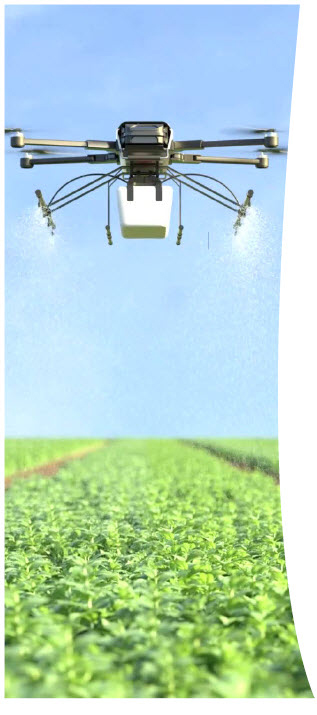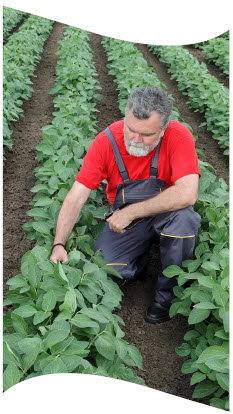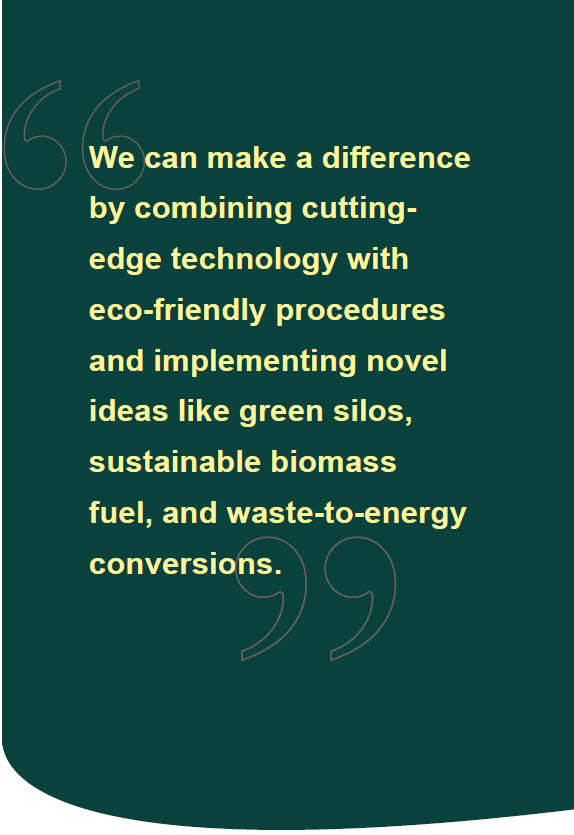
MANAGING THE CLIMATE
EMERGENCY TOGETHER
Even while the prospect of climate change and its dire consequences can be overwhelming, giving up on things like worsening natural disasters is not a viable option. A sustainable future is within our grasp if we combine our knowledge and resources in the public and commercial sectors.
High-emissions industries, such as aviation, must be decarbonized immediately if this aim is to succeed. This is possible with the use of revolutionary renewable fuels and aerodynamic advancements. Energy systems can be finetuned with the help of cutting-edge technology
like AI and data analytics, while naturally-motivated solutions like reforestation serve as crucial carbon sinks.
Carbon sinks created by reforestation are essential.
However, technology can only go so far without accompanying political
and economic reforms that put environmental sustainability first. Strong leadership is required, with quantifiable goals for reducing emissions and a fair price on carbon. Investments that will help the world adapt to climate change should be

a priority for the financial industry just as much as fossil fuels.
Centralized policies are important, but they are not the whole picture. The passionate youngsters throughout the world who are at the forefront of grassroots climate advocacy are essential catalysts for change that will ensure institutional accountability. Integrative and comprehensive answers emerge when other viewpoints are heard and considered.
If we work together, we can design sustainable food systems that are community-focused and employ agroecological
practices. Sustainable tourism with respect for local cultures and environments is possible. Time is of the essence, and the call to action can be heard at every level of society. The climate problem is difficult but not insurmountable. Creating
a prosperous and equitable future is still within our reach if we pool our collective intelligence and show kindness to one another. This future is attainable if we have the courage to imagine it, and the key to getting there is communication across political divides and geographic boundaries.
A robust agricultural transformation is essential because of the increasing frequency and severity of extreme weather events such as storms, droughts, and high temperatures. Soil bacteria and organic methods working together provide a model for revitalizing ecosystems while maintaining human populations.



Benefitting processes, including carbon sequestration, nutrient recycling, and natural pest deterrence, are powered by the beneficial bacteria abundant in MicrobeBio’s biofertilizers. Reduced use of synthetic chemicals and increased resistance to environmental challenges are two benefits of adopting these agricultural practices. MicrobeBio biofertilizers, according to empirical evidence, increase soil carbon retention by 25-30%, thanks to the presence of these microbial champions.
The biopesticides developed by MicrobeBio capitalize on bacteria’
inherent abilities for pest control, reducing the need for hazardous farming chemicals that pollute the air, water, and Earth while protecting local biodiversity.
Combining them with MicrobeBio’s organically distilled plant fertilizers improves soil health. Adopting these organic practices increases soil carbon, which helps offset atmospheric carbon and reduces the effects of climate change. Soils that are both rich and healthy filter water and prepare the ground for bumper crops.
By adopting these nature-honoring practices, agriculture may help
protect the planet that sustains humans. Professionals who use MicrobeBio procedures revitalize soil ecology, which is why they are credited with replenishing carbon. This ensures the continued availability of our food supply and reduces pollution at the same time.
This change must occur from the bottom up as well as the top. To stimulate change and keep institutions in check, grassroots movements, especially those driven by the world’s youth, play a crucial role. Combining business-to-business and business-to-consumer efforts can help further this goal. If an agri-tech
firm wants to improve its farming equipment or data-driven solutions, it can encourage business-to-business partnerships, while a business-to-consumer initiative could introduce customers to tech-enabled, sustainably grown food.
By working together, we can shape food systems that are both sustainable and equitable, utilizing agroecological principles. Drones for accurate irrigation, AI-driven robots for harvesting, and blockchain for traceable supply chains are just some of the cutting-edge technologies that farmers can take advantage of with the help of high-tech agriculture.

Simultaneously, sustainable tourism can develop in ways that greatly value local people and their environments.
The adoption of these hybrid, nature-friendly, and technology-driven solutions ushers in a new era of farming. We have a complete plan for the future with B2B and B2C partnerships at the helm, such as agri-tech companies working together on IoT solutions or direct consumer sales of sustainable produce.
Green infrastructure’s implementation in farming is another game-changer. Green silos provide waste- and energy-saving storage options for the modern world. Modern food processing methods have the potential to make food production more sustainable by decreasing food waste and maximizing the use of scarce resources.
We can also investigate the possibility of using agricultural byproducts. In addition to providing a long-term solution to waste management, modern fuel systems can be used to convert green and low-emission farm wastes into energy.

However, technological progress alone is not a permanent fix. For our methods to be in harmony with the world, fundamental changes to our political and economic systems are required. Aggressive emission reduction targets and a real-world tax for carbon emissions must be established by government bodies. At the same time, the financial system needs to redirect its attention and resources from fossil fuels to renewable energy and climate change adaptation.
These game-changing measures can be amplified by combining business-to-business
and business-to-consumer approaches. Business-to-business (B2B) partnerships between Agritech firms can improve farming equipment and develop AI-driven solutions, while business-to-consumer (B2C) endeavors can highlight tech-enabled food and digital platforms that connect consumers directly to farmers.
Together, we can shape food systems that are both robust and sustainable, built on a foundation of agroecological and technology-driven practices. Key technologies that will shape the future include drones, AI-guided robots,
blockchain for transparent supply chains, and green silos. Meanwhile, sustainable tourism has the potential to develop into a platform that respects and supports local communities and ecosystems. Harmonious farming practices, which integrate soil microbes and organic principles, are essential in the face of mounting climate concerns. We can make a difference by combining cutting-edge technology with eco-friendly procedures and implementing novel ideas like green silos, sustainable biomass fuel, and waste-to energy conversions. If we have the guts to
seize it, we can create a future in which we do more than just survive. Such methods guarantee thriving communities without putting undue strain on the planet. MicrobeBio provides the equipment necessary to increase localized climate resistance systematically.


